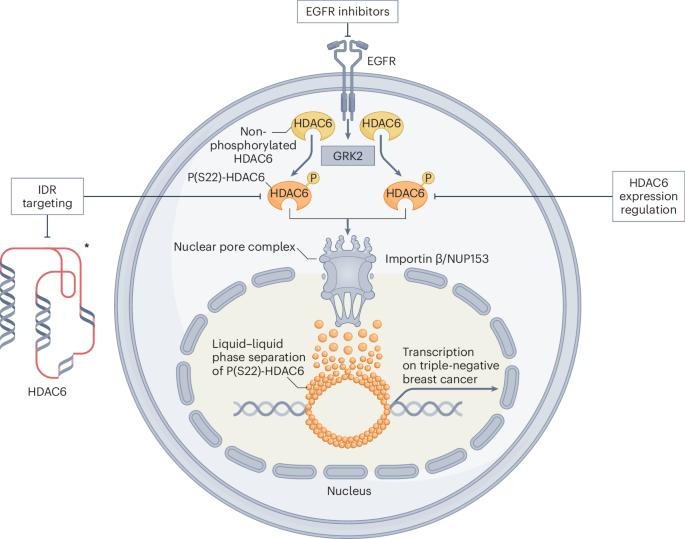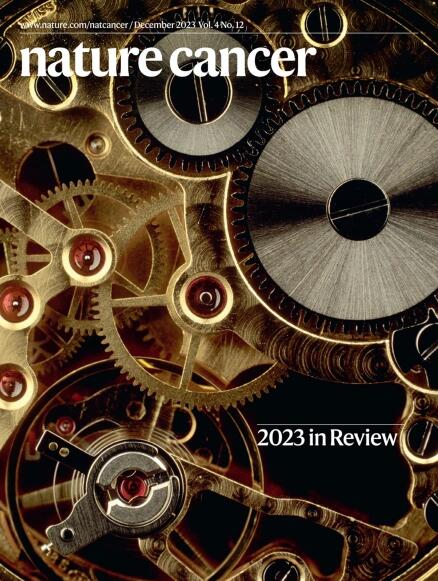相分离重构乳腺癌染色质
IF 28.5
1区 医学
Q1 ONCOLOGY
引用次数: 0
摘要
液-液相分离已被证明与肿瘤发生有关。现在发现磷酸化的 HDAC6 可形成核生物凝集物,影响染色质构象,进而影响基因表达,导致三阴性乳腺癌恶变。本文章由计算机程序翻译,如有差异,请以英文原文为准。

Phase separation rewires chromatin in breast cancer
Liquid–liquid phase separation has been shown to be involved in tumorigenesis. Phosphorylated HDAC6 is now found to form nuclear biocondensates that affect chromatin conformation and thereby gene expression, contributing to malignancy in triple-negative breast cancer.
求助全文
通过发布文献求助,成功后即可免费获取论文全文。
去求助
来源期刊

Nature cancer
Medicine-Oncology
CiteScore
31.10
自引率
1.80%
发文量
129
期刊介绍:
Cancer is a devastating disease responsible for millions of deaths worldwide. However, many of these deaths could be prevented with improved prevention and treatment strategies. To achieve this, it is crucial to focus on accurate diagnosis, effective treatment methods, and understanding the socioeconomic factors that influence cancer rates.
Nature Cancer aims to serve as a unique platform for sharing the latest advancements in cancer research across various scientific fields, encompassing life sciences, physical sciences, applied sciences, and social sciences. The journal is particularly interested in fundamental research that enhances our understanding of tumor development and progression, as well as research that translates this knowledge into clinical applications through innovative diagnostic and therapeutic approaches. Additionally, Nature Cancer welcomes clinical studies that inform cancer diagnosis, treatment, and prevention, along with contributions exploring the societal impact of cancer on a global scale.
In addition to publishing original research, Nature Cancer will feature Comments, Reviews, News & Views, Features, and Correspondence that hold significant value for the diverse field of cancer research.
 求助内容:
求助内容: 应助结果提醒方式:
应助结果提醒方式:


